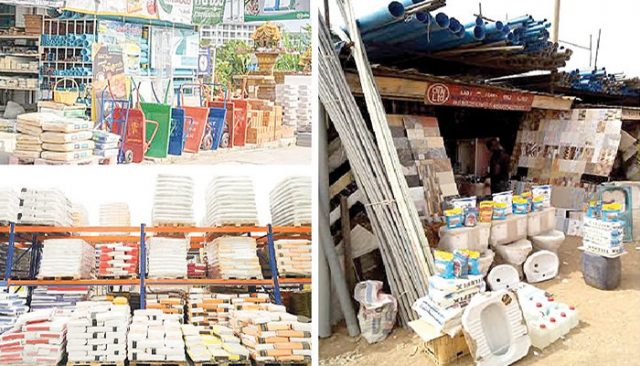The Nigerian Institution of Estate Surveyors and Valuers (NIESV), Lagos State branch, has revealed that 70% of building materials in Nigeria are imported. This was disclosed during the 2024 Estate Week’s press briefing held recently in Lagos.
Gbenga Ismail, the Chairman of NIESV Lagos State, highlighted the significant reliance on imported building materials, which has led to increased housing costs in the country. Ismail explained, “70 per cent of building materials are imported and if 70 per cent are imported without fluctuating exchange rate, you know the consequence.”
He elaborated, “Now, what is the 30 per cent? We have cement, cement is how much today? We have concrete block work, part of it is cement mixed with sand, among others, and then labour, which is another expensive part.”

Ismail also noted that materials like iron rods are imported, despite the existence of local steel companies such as Ajaokuta, which are not being utilized effectively.
According to Ismail, the high cost of imported materials makes homeownership difficult, framing it as a security issue that could be mitigated by localizing the production of building materials. He emphasized the need for policies that support the use of local materials to make housing more affordable.
Ismail stressed the importance of prioritizing first-time homebuyers, suggesting that the government should create opportunities and provide concessions to help individuals achieve their dream of owning their first home. “This will enable them to secure a stable and prosperous future,” he stated.
He also pointed out that critical workers, such as doctors, medical professionals, armed forces personnel, and police officers, should be given priority in homeownership. “By securing housing for these essential workers, we can create a stable foundation for our society, and everything else will fall into place,” Ismail added.
The chairman further emphasized the need for government policies that facilitate easier and more accessible land acquisition for citizens, promoting greater availability and affordability of land.
Last year, Vice President Kashim Shettima mentioned that Nigeria needs N21 trillion to bridge its 28 million housing gap. Additionally, the Minister of Housing and Urban Development, Mr. Ahmed Dangiwa, recently announced that the Federal Government has awarded contracts for the construction of 3,500 housing units in 13 states.
This significant reliance on imported materials underscores the need for strategic policies to boost local production and reduce housing costs, ensuring more Nigerians can afford to own homes.
Support InfoStride News' Credible Journalism: Only credible journalism can guarantee a fair, accountable and transparent society, including democracy and government. It involves a lot of efforts and money. We need your support. Click here to Donate
